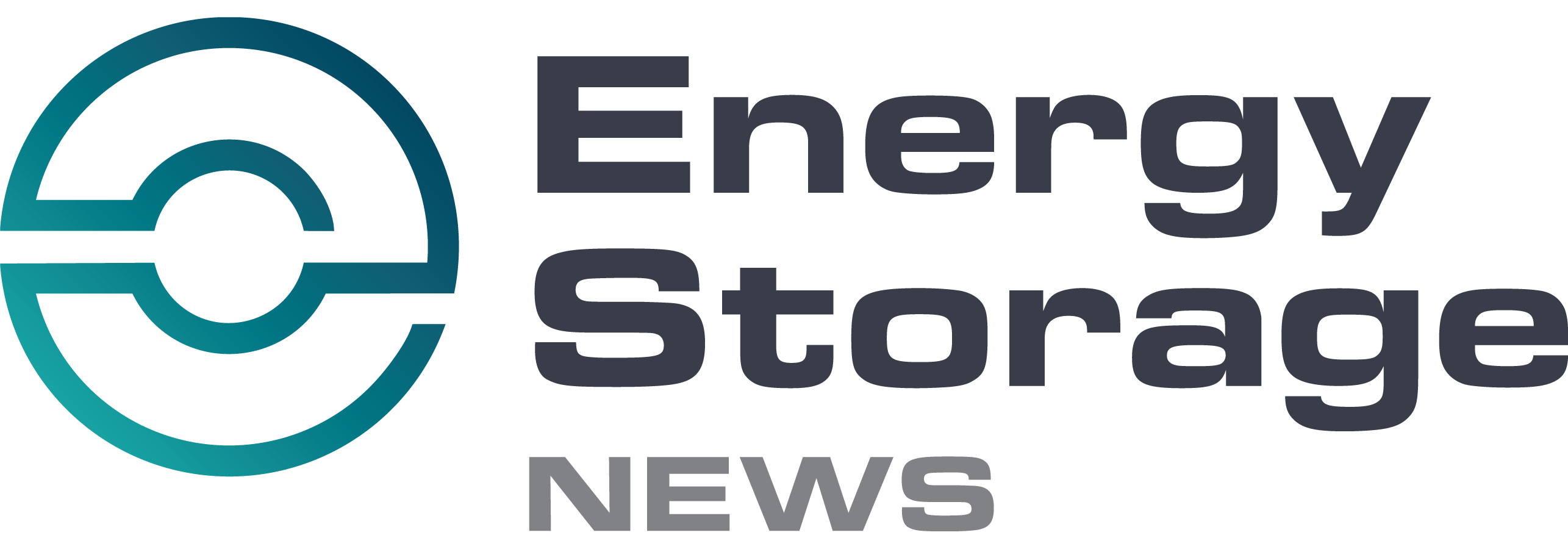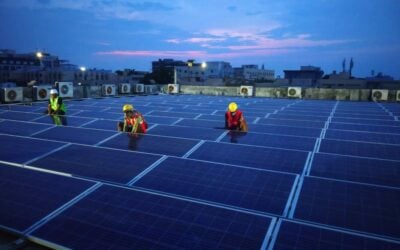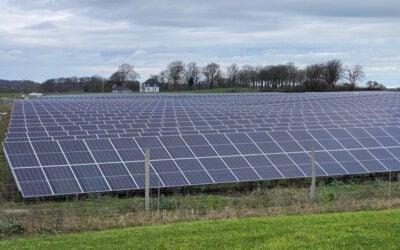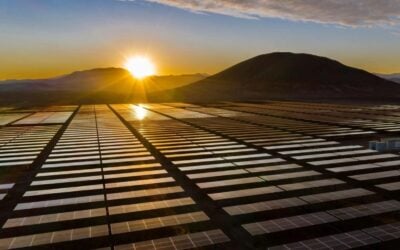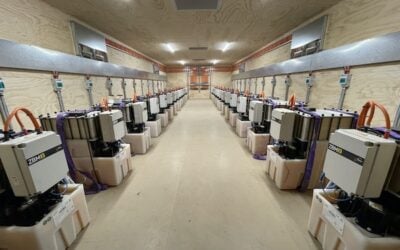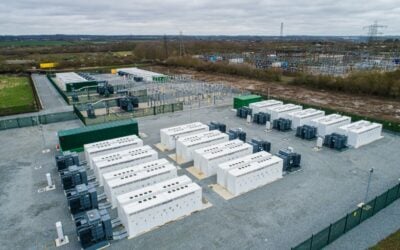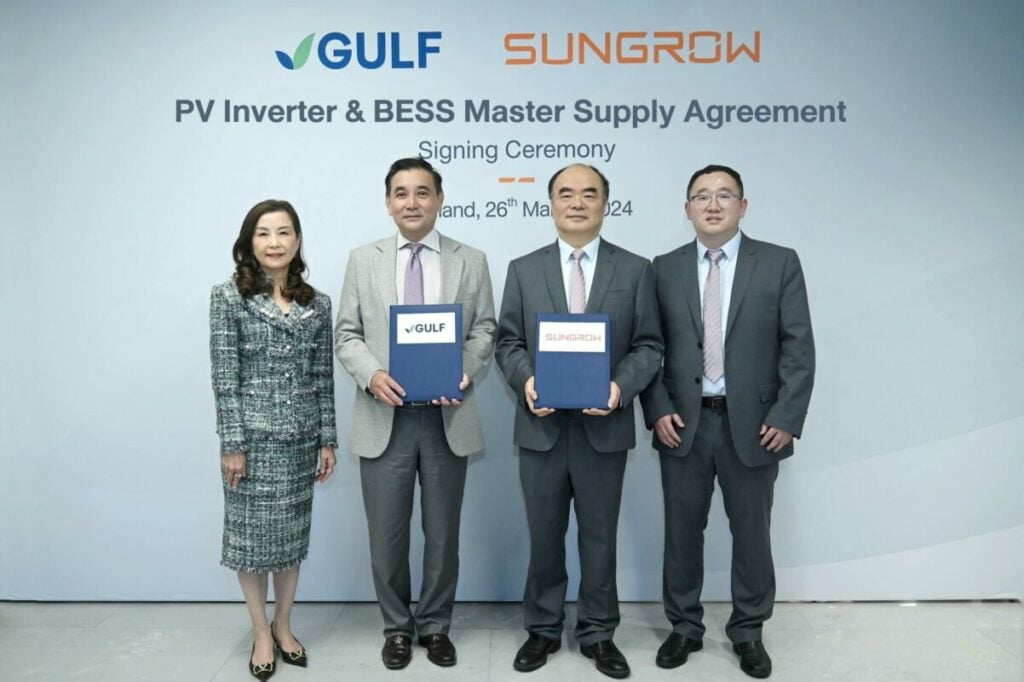
Solar PV inverter and battery energy storage system (BESS) manufacturer Sungrow has signed a strategic supply agreement with Gulf Energy Development in Thailand.
Sungrow announced the deal yesterday (27 March). It will provide solar inverter and liquid-cooled BESS equipment for 3.5GWp of Gulf Energy Development projects over the next seven years.
Enjoy 12 months of exclusive analysis
- Regular insight and analysis of the industry’s biggest developments
- In-depth interviews with the industry’s leading figures
- Annual digital subscription to the PV Tech Power journal
- Discounts on Solar Media’s portfolio of events, in-person and virtual
Or continue reading this article for free
The ratio of inverters to BESS was not specified in a press release, however, Sungrow did say that it will provide its utility-scale SG350HX string inverters and PowerTitan range of battery storage equipment to its customer. Sungrow recently launched PowerTitan 2.0, which enables up to 5MWh storage capacity using lithium iron phosphate (LFP) batteries with a 2.5MW power conversion system (PCS) integrated in a standard 20-ft container configuration.
Gulf Energy Development (GULF) said that equipment purchased through the Master Supply Agreement (MSA) will be deployed at a combination of ground-mount solar PV plant, solar-plus-storage hybrids and rooftop PV projects in Thailand.
The projects are expected to enter commercial operation between this year and 2030 and will be deployed by numerous GULF subsidiaries.
The deal follows an MSA Gulf Energy announcement earlier this month (22 March) with another major Chinese solar PV company, JinkoSolar, for the supply of PV modules with a total installed capacity of 3,500MWp, also to be deployed at GULF group company solar farms, co-located battery and solar plants and rooftop PV.
Gulf Energy Development is one of Thailand’s biggest independent power producers (IPPs), with a portfolio mainly comprising gas-fired generation and renewable energy. The company’s 2023 revenues totalled THB116 billion (US$3.2 billion), with THB15.6 billion profit.
While it has operations and assets in the Middle East and other countries in Southeast Asia; in Thailand, Gulf Energy is among IPPs that sell power to the Electricity Generating Authority of Thailand (EGAT), the country’s monopoly energy supplier.
Sungrow noted that under the national Power Development Plan (PDP), Thai renewable generation resources will be allowed to participate in electricity market-based opportunities to maximise their revenues.
Sungrow claimed the PDP’s provisions will enable Thailand to create a model of renewable energy development for Southeast Asia.
Currently, Thailand’s total generation capacity of about 53GW is made up of a mix of EGAT’s own generation fleet, power it procures from major IPPs like Gulf, distributed power producers and energy imports from neighbouring countries.
At present, the vast majority of generation comes from gas (around 60%) and domestic coal-fired power plants (about 15%), while renewable energy – including solar PV, wind, biomass and waste-to-energy – accounts for about 23%, according to figures from the US International Trade Admiinistration (ITA).
So far, battery storage development in Thailand has been limited, although, in 2022, 994MW of solar-plus-storage projects were awarded power purchase agreements (PPAs) with EGAT through a government-run tender process.
Under its Nationally Determined Contributions to meeting the goals of the multilateral Paris Climate Agreement, Thailand is targeting carbon neutrality by 2050 and net zero greenhouse gas (GHG) emissions by 2065. Meanwhile the Thailand National Energy Plan (NEP) 2023 is expected to be finalised this quarter and includes the PDP as well as plans for energy efficiency, renewables development and gas and fuel development.
Energy-Storage.news’ publisher Solar Media will host the 2nd Energy Storage Summit Asia, 9-10 July 2024 in Singapore. The event will help give clarity on this nascent yet quickly growing market, bringing together a community of credible independent generators, policymakers, banks, funds, off-takers and technology providers. For more information, go to the website.
